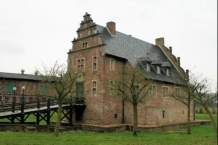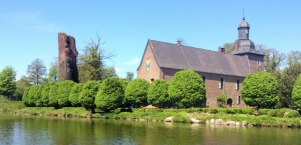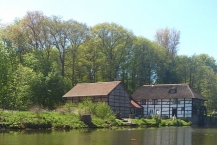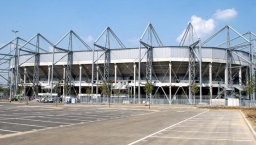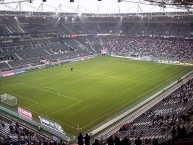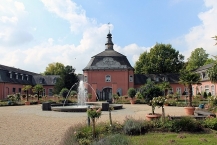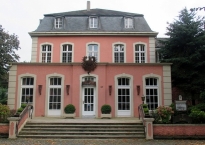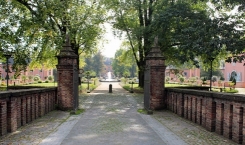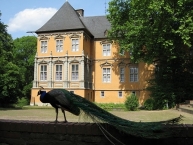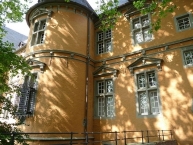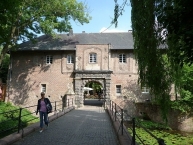Cycle Tour Round trip Hückelhoven - Neuss
Planned tour
Actions
![]()
Please wait - map data are loading
Added on 04 Sep 2015,
last edited by Friedhelm on 05 Sep 2015
Actions
Cycle route metrics
planned
ridden
Total distance in km
123
0
Cumulative elevation gain in m
381
0
Avg. slope uphill in %
0,31
-
Cumulative elevation loss in m
380
0
Information about rights to the gps-track data | |
|---|---|
Rights owner | |
Rights characteristic / license | by-sa: CREATIVE COMMONS Attribution-ShareAlike |
Link to the description of the license | |
GPX file uploaded | by Friedhelm on 04 Sep 2015
|
Track points in total
1.700
0
Track points per km (avg)
14
0
Start/endpoint
Start location
Hückelhoven, Nordrhein-Westfalen, DE (50 m NHN)
End location
Hückelhoven, Nordrhein-Westfalen, DE (51 m NHN)
Beds4Cyclists, worth visiting and infrastructure
Name and address
Latitude / Longitude
Phone
Fax
Mobile
Type of accommodation
Rating for cyclists
Route km
Dist. to route
Elevation
2 km
4,2 km
46 m
Information about copyright | |
|---|---|
Rights owner | Käthe und Bernd Limburg |
Rights characteristic / license | by-sa: CREATIVE COMMONS Attribution-ShareAlike |
Link to the description of the license | |
Image taken over from | https://commons.wikimedia.org/wiki/File:Hückelhoven-Doveren_Denkmal-Nr._99,_Gut_Grittern_(4372).jpg |
Image has been uploaded | by biroto-Redaktion on 22 Dec 2020
|
Das Gut Grittern, auch Haus Grittern oder Rittergut Grittern genannt, ist ein denkmalgeschütztes ehemaliges Rittergut südwestlich von Doveren , einem Stadtteil von Hückelhoven
im Kreis Heinsberg. Das heutige Hauptgebäude hat seine Wurzeln in einem Bau des 16. Jahrhunderts und gehört zu einer ganzen Kette von Herrensitzen im Tal der Rur
. Die Anlage befindet sich in Privatbesitz und kann nicht besichtigt werden.
Das Gut Grittern ist eine zweiteilige Anlage, bestehend aus einem zweigeschossigen Haupthaus und den nordwestlich vorgelagerten Wirtschaftsgebäuden aus dem 19. Jahrhundert.
Information about copyright | |
|---|---|
Rights characteristic / license | by-sa: CREATIVE COMMONS Attribution-ShareAlike |
Link to the description of the license | |
Input taken over from: |
Seite „Gut Grittern“. In: Wikipedia, Die freie Enzyklopädie. Bearbeitungsstand: 13. November 2018, 22:09 UTC. URL: https://de.wikipedia.org/w/index.php?title=Gut_Grittern&oldid=182732211 (Abgerufen: 22. Dezember 2020, 15:24 UTC) |
taken over / edited on | 22 Dec 2020
|
taken over / edited by |
|
14 km
4,3 km
77 m
Information about copyright | |
|---|---|
Rights owner | https://commons.wikimedia.org/w/index.php?title=User:Tsiepmann |
Rights characteristic / license | by-sa: CREATIVE COMMONS Attribution-ShareAlike |
Link to the description of the license | |
Image taken over from | https://commons.wikimedia.org/wiki/File:Schloss_Tueschenbroich_(2013).jpg |
Image has been uploaded | by biroto-Redaktion on 22 Dec 2020
|
Information about copyright | |
|---|---|
Rights owner | https://commons.wikimedia.org/w/index.php?title=User:Tsiepmann |
Rights characteristic / license | by-sa: CREATIVE COMMONS Attribution-ShareAlike |
Link to the description of the license | |
Image taken over from | https://commons.wikimedia.org/wiki/File:Schloss_Tueschenbroich_-_Muehle_(2013).jpg |
Image has been uploaded | by biroto-Redaktion on 22 Dec 2020
|
Schloss Tüschenbroich ist eine Schlossanlage bei dem Dorf Tüschenbroich , etwa 25 km westlich von Mönchengladbach
im Quellgebiet der Schwalm.
Historische Keimzelle war die heute von Bäumen überwachsene, mitten im Mühlweiher befindliche Motte. Diese Motte Tüschenbroich (Bodendenkmal auf einer wahrscheinlich vom Festland durch Graben abgetrennten Insel in der Mitte des Burgweihers) als Wasserburg errichtet und 1172 urkundlich erstmals erwähnt als Thuschinbroc. Die Gebäude sind im Dreißigjährigen Krieg abgebrannt.
Tüschenbroich gehörte zu Wassenberg und später zum Herzogtum Jülich.
1624 kaufte Franz von Spiering das kriegszerstörte Tüschenbroich zum Preis von 24.200 Reichstaler. Er ließ die Anlage als barocke Schlossanlage in Ziegelbauweise neu errichten. Der "Codex Welser", eine illustrierte Bestandsaufnahme aller ritterlichen Lehngüter im Herzogtum Jülich, zeigt 1720 sowohl Hauptburginsel wie die noch heute in Teilen erhaltene Vorburganlage, die später, nach Zerstörungen zur Hauptburg mutierte.
1876 folgten nochmals Erneuerungsarbeiten, nachdem das Schloss nach einem Sturm stark beschädigt worden war.
Schloss Tüschenbroich ist heute in Privatbesitz.
Information about copyright | |
|---|---|
Rights characteristic / license | by-sa: CREATIVE COMMONS Attribution-ShareAlike |
Link to the description of the license | |
Input taken over from: |
Seite „Schloss Tüschenbroich“. In: Wikipedia, Die freie Enzyklopädie. Bearbeitungsstand: 29. November 2020, 06:47 UTC. URL: https://de.wikipedia.org/w/index.php?title=Schloss_T%C3%BCschenbroich&oldid=206043076 (Abgerufen: 22. Dezember 2020, 14:53 UTC) |
taken over / edited on | 22 Dec 2020
|
taken over / edited by |
|
20 km
4,9 km
79 m
Information about copyright | |
|---|---|
Rights owner | |
Rights characteristic / license | cc0: Public Domain no Rights reserved |
Link to the description of the license | |
Image taken over from | commons.wikimedia.org/wiki/File:Borussia_Park_Mönchengladbach_002.jpg |
Image has been uploaded | by biroto-Redaktion on 29 Dec 2013
|
Information about copyright | |
|---|---|
Rights owner | |
Rights characteristic / license | by-sa: CREATIVE COMMONS Attribution-ShareAlike |
Link to the description of the license | |
Image taken over from | commons.wikimedia.org/wiki/File:Borussia_Park_Mönchengladbach.jpg |
Image has been uploaded | by biroto-Redaktion on 29 Dec 2013
|
Borussia-Park (German pronunciation: [boˈʁʊsi̯a ˈpaʁk]; official name "Stadion im Borussia-Park") in Mönchengladbach , North Rhine-Westphalia, Germany is the home stadium of German Bundesliga club Borussia Mönchengladbach. It replaced the smaller Bökelberg
stadium, which no longer satisfied modern safety standards and international requirements, in July 2004.
Borussia-Park has a capacity of up to 54,057, of which 16,145 are standing-room only due to popular demand. For international games, the standing room is converted into temporary seating for a total seating capacity of 46,249.
The new stadium features amenities such as VIP lounges, fanshop and sports bar, and cost 85 million euro to construct.
Despite its large capacity and relative youth, the stadium missed out on holding matches during the 2006 World Cup, which Germany hosted. It was the largest capacityBundesligastadium to do so.
Information about copyright | |
|---|---|
Rights characteristic / license | by-sa: CREATIVE COMMONS Attribution-ShareAlike |
Link to the description of the license | |
Input taken over from: |
Wikipedia contributors, 'Borussia-Park', Wikipedia, The Free Encyclopedia, 1 July 2013, 01:55 UTC, http://en.wikipedia.org/w/index.php?title=Borussia-Park&oldid=562329997 [accessed 29 December 2013] |
taken over / edited on | 29 Dec 2013
|
taken over / edited by |
|
Hours of opening
Termine für offene, turnusmäßige Führungen (für Einzelpersonen oder kleine Gruppen):
- Freitags: 15 und 17 Uhr
- Samstags: 11 und 13 Uhr
- Sonntags: 10 Uhr/ 11 Uhr / 12 Uhr / 13 Uhr
An Heimspieltagen finden keine Führungen statt.
24 km
0,2 km
64 m
Information about copyright | |
|---|---|
Rights owner | |
Rights characteristic / license | by-sa: CREATIVE COMMONS Attribution-ShareAlike |
Link to the description of the license | |
Image taken over from | https://commons.wikimedia.org/wiki/File:Wickrath_Westflügel.jpg |
Image has been uploaded | by biroto-Redaktion on 22 Dec 2020
|
Information about copyright | |
|---|---|
Rights owner | |
Rights characteristic / license | by-sa: CREATIVE COMMONS Attribution-ShareAlike |
Link to the description of the license | |
Image taken over from | https://commons.wikimedia.org/wiki/File:Landesstallmeisterhaus.jpg |
Image has been uploaded | by biroto-Redaktion on 22 Dec 2020
|
Information about copyright | |
|---|---|
Rights owner | |
Rights characteristic / license | by-sa: CREATIVE COMMONS Attribution-ShareAlike |
Link to the description of the license | |
Image taken over from | https://commons.wikimedia.org/wiki/File:Pferdekopf_Brücke_4.jpg |
Image has been uploaded | by biroto-Redaktion on 22 Dec 2020
|
Das Schloss Wickrath ist eine Wasserschlossanlage an der Niers in der Region Niederrhein. Sie liegt in unmittelbarer Nähe des Mönchengladbacher Stadtteils Wickrath und besteht aus zwei barocken Vorburg-Flügeln, einem schlossartigen Wohngebäude und einem barocken Park in Form einer fünfeckigen Grafenkrone.
Das Schloss – eine Vorburg und ein Hochschloss (Hauptschloss) – wurde im Auftrag des Reichsgrafen Wilhelm Otto Friedrich von Quadt (1717–1785) zwischen 1746 und 1772 erbaut. Die Vorburg ist erhalten und wird seit ihrem Bau mit kurzen Unterbrechungen bis heute als Pferdestall genutzt. Das Hochschloss wurde 1859 abgerissen, und an seiner Stelle 1875 das heute noch erhaltene schlossartige Landstallmeisterhaus als Wohngebäude für den damaligen Gestütsleiter errichtet.
Das Gebäudeensemble und der öffentlich zugängliche Park wurden am 24. September 1985 unter Denkmalschutz gestellt, ein Teil des Parks steht darüber hinaus unter Naturschutz.
In Vorbereitung zur Landesgartenschau 2002 wurden die Vorburg, die Brücken und der Park umfangreich saniert. Die Vorburg wurde in der ursprünglichen, ochsenblutroten Farbe neu angestrichen. Im selben Jahr entstand auch das Pferdezentrum Schloss Wickrath, als das Rheinische Pferdestammbuch seinen Sitz von Bonn zum Schloss Wickrath verlegte. Seitdem wird der Ostflügel wieder als Pferdestall genutzt. Der Westflügel ist heute bewohnt, und das Landstallmeisterhaus wird von einem Gastronomiebetrieb genutzt.
Östlich der Schlossanlage befinden sich ein Turnierplatz, ein Reitstall und eine neue Veranstaltungshalle. Diese wird für verschiedene pferdesportliche Veranstaltungen und Volksfeste genutzt. Seit 2004 ist Schloss Wickrath Teil der Straße der Gartenkunst zwischen Rhein und Maas .
Information about copyright | |
|---|---|
Rights characteristic / license | by-sa: CREATIVE COMMONS Attribution-ShareAlike |
Link to the description of the license | |
Input taken over from: |
Seite „Schloss Wickrath“. In: Wikipedia, Die freie Enzyklopädie. Bearbeitungsstand: 9. November 2020, 09:35 UTC. URL: https://de.wikipedia.org/w/index.php?title=Schloss_Wickrath&oldid=205346969 (Abgerufen: 22. Dezember 2020, 14:33 UTC) |
taken over / edited on | 22 Dec 2020
|
taken over / edited by |
|
33 km
0,1 km
47 m
Information about copyright | |
|---|---|
Rights owner | |
Rights characteristic / license | by-sa: CREATIVE COMMONS Attribution-ShareAlike |
Link to the description of the license | |
Image taken over from | |
Image has been uploaded | by biroto-Redaktion on 30 Dec 2013
|
Information about copyright | |
|---|---|
Rights owner | |
Rights characteristic / license | by-sa: CREATIVE COMMONS Attribution-ShareAlike |
Link to the description of the license | |
Image taken over from | commons.wikimedia.org/wiki/File:Schloss_Rheydt_Herrenhaus.jpg |
Image has been uploaded | by biroto-Redaktion on 30 Dec 2013
|
Information about copyright | |
|---|---|
Rights owner | |
Rights characteristic / license | by-sa: CREATIVE COMMONS Attribution-ShareAlike |
Link to the description of the license | |
Image taken over from | |
Image has been uploaded | by biroto-Redaktion on 30 Dec 2013
|
Schloss Rheydt is a Renaissance palace in Rheydt , Mönchengladbach
, North Rhine-Westphalia, Germany. Over the years the building has been the family seat of various noble families, including the Bylandt-Rheydt dynasty that ruled over Rheydt
for over 300 years and gave the palace its present look.
Originally a castle dating from 1060, the palace has evolved over the years to become the palace it is today. The castle's first documented mention dates to 1180, made by the Cologne Archbishop Philip I when he mentioned revenues that were to be collected from the then castle owner, the Lord of Rheydt, in his correspondence. The first Lord of the castle mentioned by name is William of Heppendorf.
Otto von Bylandt had the existing exterior facade created by Maximilian Pasqualini (1534–1572), son of the Italian architect Alessandro Pasqualini. Pasqualini renovated in the style of his father, adding casemates and bastions and creating a moat around the palace. Pasqualini also considerably renovated the interior by adding fireplaces, statues and various paintings. Most of Pasqualini's work remains in a very good condition.
Throughout the 19th century the palace changed hands many times, however the common owners were unable maintain the palace due to the upkeep costs. Gradually the palace fell into disrepair. The palace was purchased by the town of Rheydt from the last private owner of the palace in 1917. Since then the palace has undergone some restoration (1988–1993). Since the purchase by the town of Rheydt vast parts of Schloss Rheydt have been converted into museum areas and reopened. The palace was awarded European Museum of the Year Award by the European Museum Forum in 1978. An annual mediaeval festival also takes place at Schloss Rheydt.
Information about copyright | |
|---|---|
Rights characteristic / license | by-sa: CREATIVE COMMONS Attribution-ShareAlike |
Link to the description of the license | |
Input taken over from: |
Wikipedia contributors, 'Schloss Rheydt', Wikipedia, The Free Encyclopedia, 11 March 2013, 06:53 UTC, http://en.wikipedia.org/w/index.php?title=Schloss_Rheydt&oldid=543361887 [accessed 29 December 2013] |
taken over / edited on | 30 Dec 2013
|
taken over / edited by |
|
Hours of opening
Dienstag bis Freitag 11.00 - 17.00 Uhr
Samstag bis Sonntag 11.00 - 18.00 Uhr
Montags sind das Museum und die Wallanlage geschlossen!
![]()

